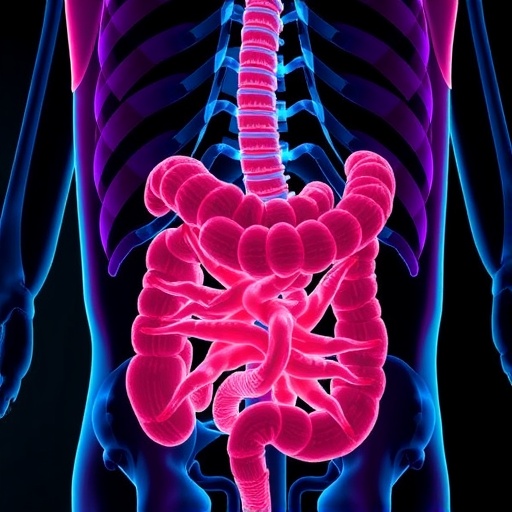In a groundbreaking study poised to revolutionize colorectal cancer screening, researchers have highlighted the remarkable potential of fecal-based miR-92a as an effective diagnostic biomarker for advanced colorectal neoplasia. The increasing prevalence of colorectal cancer underscores the necessity for innovative screening methods that are both accurate and accessible. This research, conducted by Wang et al., represents a significant step forward in early detection strategies, aiming to reduce morbidity and mortality associated with this common malignancy.
Colorectal cancer stands as one of the leading causes of cancer-related deaths worldwide. Early diagnosis is crucial, as the disease is often asymptomatic in its initial stages. Traditional screening methods—such as colonoscopy—are invasive, costly, and can deter patients from participating in routine screenings. Consequently, the need for non-invasive alternatives has become increasingly urgent. Wang and colleagues have investigated miR-92a, a microRNA found in fecal samples, as a non-invasive marker that could aid in the early detection of advanced neoplasia.
The study involved a rigorous prospective multicenter screening trial that spanned various demographics and geographical areas, allowing for a comprehensive analysis of the miR-92a biomarker. The authors undertook an extensive review of existing literature to support their hypothesis, emphasizing that microRNAs like miR-92a play critical roles in cancer biology, specifically in pathways linked to tumorigenesis and metastasis. This background sets the foundation for understanding why miR-92a could serve as an effective biomarker in clinical practice.
Sample collection was meticulously executed to ensure the reliability of results. Subjects were recruited from multiple centers, and both control and patient groups were established. This stratification allowed for a comparative analysis that enhanced the validity of the study’s conclusions. Participants provided fecal samples, which were then analyzed for the presence and quantity of miR-92a. The methodology utilized cutting-edge techniques to quantitatively assess microRNA expression, ensuring high sensitivity and specificity in results.
Interpreting the collected data revealed that elevated levels of miR-92a in fecal samples correlated significantly with the presence of advanced colorectal neoplasia. The statistical significance of these findings was robust, with an impressive sensitivity and specificity ratio. The trial highlighted the importance of miR-92a not merely as a marker of neoplastic activity but also as a potential tool for stratifying risk among various patient populations. These results suggest that fecal-based testing for miR-92a could significantly streamline the screening process.
Moreover, the researchers discussed the implications of these findings in the context of public health. Should miR-92a testing gain approval as a screening tool, it could lead to increased compliance with screening recommendations. Non-invasive methods like this could encourage more individuals to participate in earlier screening, thus increasing the chances of detecting precancerous lesions or early-stage cancers. Public health messaging would greatly benefit from emphasizing the accessibility and simplicity of such testing.
Wang et al.’s study not only contributes to the scientific understanding of colorectal cancer biology but also addresses a pressing clinical need. By shifting focus towards microRNA profiling in non-invasive samples, the research aligns with a broader trend in oncology that prioritizes personalized medicine. Biomarkers such as miR-92a exemplify how personalized approaches can significantly enhance patient outcomes. The implications of such a shift are profound, potentially leading to tailored screening strategies that consider individual risk factors.
In addition to its clinical importance, this research is anticipated to inspire further investigations into the role of other microRNAs as biomarkers for different cancers. The field of liquid biopsies is rapidly evolving, and microRNA profiling is at the forefront of such advancements. By paving the way for the use of fecal-based testing in oncology, Wang et al. are contributing to a shift toward more patient-centered care models, where ease of access and patient comfort are prioritized alongside diagnostic accuracy.
As researchers around the globe digest these findings, there is an optimistic outlook on the integration of miR-92a into clinical practice. The collaboration among multiple centers showcases the power of collective research efforts, emphasizing that comprehensive approaches are often essential in tackling complex health issues such as cancer. The promise of future studies building on this foundation is exciting, potentially unveiling even broader applications for microRNA biomarkers.
Although the study underscores a significant breakthrough, the journey from research to real-world application is fraught with challenges, including regulatory hurdles and the need for extensive validation in larger populations. Healthcare providers must also consider how to best incorporate this new approach into current screening guidelines. Education around the importance of screening and comfort with new testing methods will be crucial to improving patient enrollment and adherence rates.
In conclusion, the study by Wang et al. presents a compelling case for the use of fecal-based miR-92a in the early detection of advanced colorectal neoplasia. By harnessing the power of microRNAs, researchers are laying the groundwork for a transformative approach to cancer screening that prioritizes patient experience without compromising diagnostic accuracy. As we look to the future, the hope is that the findings from this study will prompt further research and ultimately lead to more innovative, evidence-based solutions for colorectal cancer prevention.
Through this comprehensive approach, the research not only marks a significant milestone for colorectal cancer screening but also sets a precedent for future investigative efforts into similar biomarkers across various diseases. As awareness grows and more studies emerge, we may be on the cusp of a new era in cancer detection centered on the analysis of microRNAs and other next-generation biomarkers.
Subject of Research: Fecal-based miR-92a as a diagnostic biomarker for advanced colorectal neoplasia.
Article Title: Diagnostic efficacy of fecal-based miR-92a for advanced colorectal neoplasia: a prospective multicenter screening trial.
Article References: Wang, JC., Zhao, L., Yu, XY. et al. Diagnostic efficacy of fecal-based miR-92a for advanced colorectal neoplasia: a prospective multicenter screening trial. Military Med Res 12, 30 (2025). https://doi.org/10.1186/s40779-025-00613-3
Image Credits: AI Generated
DOI: 10.1186/s40779-025-00613-3
Keywords: colorectal cancer, miR-92a, biomarkers, fecal test, early detection, screening trial, microRNA, public health.




